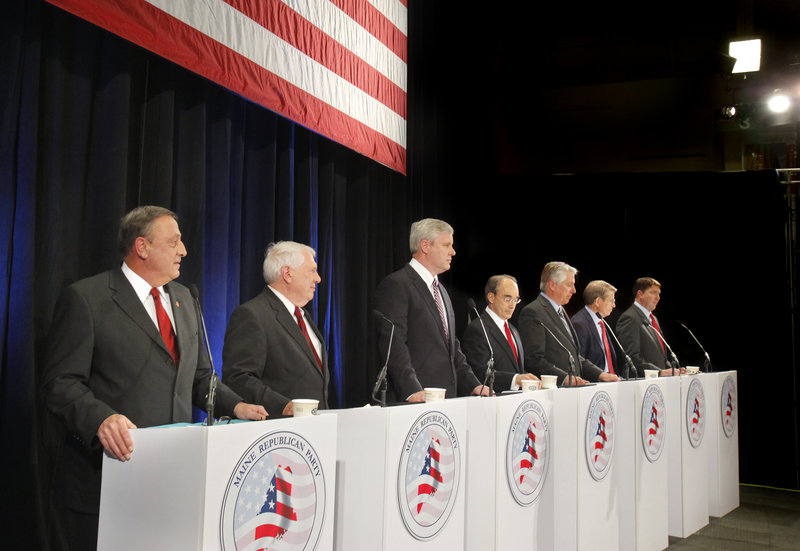PORTLAND – When I first began working on campaigns in 2000, the Internet was hardly a blip on the political radar screen. In 2004, as an advance man for John Kerry, I watched as insurgent primary candidate Howard Dean harnessed the technology to generate grassroots donations from around the country.
At the same time, the traditional media began covering the race extensively online, and bloggers generated content around the clock, requiring campaigns to respond nearly in real time. The rules were changing.
In 2008, as then-Sen. Barack Obama’s political director in New Hampshire, I had a front row seat as Obama for America embraced and thrived in this new online media environment.
The campaign created the “new normal” for the utilization of digital and social media to both speak directly with voters and empower them with the tools to engage, participate and organize on their own.
As the Obama campaign so clearly demonstrated, new media are ascendant. Facebook now has nearly 500 million active global users who share 3.5 billion pieces of content each week. Twitter has 75 million users who “tweet” 1.3 million times per hour. YouTube has 10 billion videos uploaded each month and 1 billion views per day.
We live in a world of instantaneous communication where a single individual can have a significant impact on public policy, elections, the traditional media or even world events simply by clicking a mouse or tapping out 140 characters on a mobile device.
This brave new world is on powerful display in our own 2010 Maine gubernatorial election. Candidate websites now include blogs, provide users the opportunity to comment or take action, and link prominently to the candidate’s Facebook page, YouTube channel, and Twitter feed. The campaigns are, in other words, proactively creating content and pushing it out directly to voters without the filter of the traditional media.
Equally important is the rise and influence of Maine political bloggers. Until this year, these bloggers toiled in relative obscurity, writing mostly for the “inside baseball” politicos and wonks who follow the minutiae of campaigns, elections, and the daily winners and losers in Augusta. Their influence was limited. No more.
This year has been the coming out party for the state’s political bloggers. They have interviewed the candidates, broken important stories, been courted by the campaigns, and provided insight and analysis not found in any traditional media outlet. Most importantly, their dogged citizen journalism is now influencing Maine’s traditional news outlets and the campaigns themselves.
When Derek Viger of Augusta Insider (augustainsider.us) posed a variety of education policy questions to the candidates, they all responded. That alone is indicative of the growing influence of Maine’s political bloggers.
But then, with a comment on the original blog post, an AI reader revealed that Republican gubernatorial candidate Les Otten’s policy responses had been plagiarized from the Maine Heritage Policy Center. Other local bloggers ran with the story and uncovered additional details, forcing the traditional media to pick it up, and Otten’s campaign to publicly respond.
When it appeared there were irregularities with Democratic gubernatorial candidate John Richardson’s $5 qualifying contributions for public financing, Matthew Gagnon of Pine Tree Politics (www.pinetreepolitics.com) tenaciously pursued the story and broke the news of Richardson’s withdrawal well ahead of the traditional media. When The Portland Press Herald published its story, it cited Pine Tree Politics as a source, a first for this blog.
Mike Tipping of DownEast Magazine’s The Tipping Point blog (www.downeast.com/blogs/thetippingpoint) and his own blog, Maine Politics (www.MainePolitics.net), has provided thorough and ongoing analyses of the finance reports of the gubernatorial candidates, developing charts and graphics to accompany his insights. This is tedious but important work that no one else is doing.
What does all of this mean for Maine? It means the way we create and consume information is changing rapidly. Campaigns, organizations, and individual citizens can generate and share content that directly influences the tone and course of our public policy conversations and elections.
The traditional media will have to work harder and move faster to remain relevant in this new information marketplace.
And Maine voters have the opportunity to seek out new, dynamic sources of information about their political candidates and, if they choose, instantly participate in the conversation.
Send questions/comments to the editors.



Success. Please wait for the page to reload. If the page does not reload within 5 seconds, please refresh the page.
Enter your email and password to access comments.
Hi, to comment on stories you must . This profile is in addition to your subscription and website login.
Already have a commenting profile? .
Invalid username/password.
Please check your email to confirm and complete your registration.
Only subscribers are eligible to post comments. Please subscribe or login first for digital access. Here’s why.
Use the form below to reset your password. When you've submitted your account email, we will send an email with a reset code.